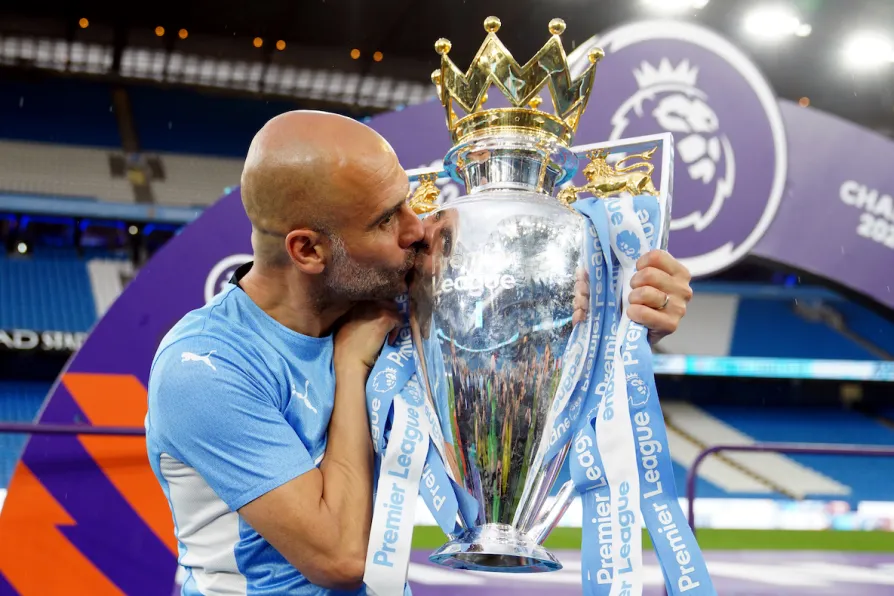England’s super sub praises England boss Sarina Wiegman for giving her hope ‘when she didn’t have any’

 SERIAL WINNER: Man City boss Pep Guardiola
SERIAL WINNER: Man City boss Pep Guardiola
AS MIKEL ARTETA’S Arsenal stumble slightly in their quest to keep hold of their position at the top of the Premier League table, the unthinkable prospect of losing the top spot to Manchester City has emerged as a reality.
Following a seven-game winning run, going into last night’s game against Southampton Arsenal had drawn their previous two games, dropping four available points.
They now have six big games remaining as they bid to win their first league title since 2004.
One of these fixtures is particularly significant, as they face City next week in a game which could decide the title.
City’s game in hand, plus this head-to-head, means the title is effectively in their hands. If they win all their remaining games they will top the Premier League for the fifth time in six years.
A path to claiming the title is never straightforward, though, and the other remaining fixtures will no doubt play a part.
If Arsenal did eventually finish second, questions would be raised around whether this could still be deemed a successful season for the club, or if it would be seen as a failure having found themselves in such a good position ahead of the run-in.
Before deciding either way, it’s worth taking a step back to look at the bigger picture.
Most pre-season predictions had Arsenal scraping fourth spot, if they had them finishing in the top four at all.

The Red’s title defence is built on clever recruitment, long-term planning, and data-led strategy. In contrast, the Magpies are falling behind — and blaming the wrong things, writes JAMES NALTON

With climate change, commercial overload and endless fixtures, footballers are being pushed to breaking point. It’s time their unions became a more powerful, unified force, writes JAMES NALTON

Joao Pedro’s emotional goals against Fluminense captured the magic of an international club competition. But even as fans bring colour and passion, the Club World Cup’s deeper issues loom large, writes JAMES NALTON















